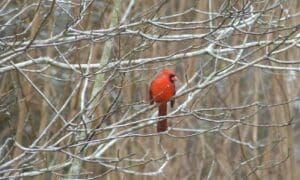I was really introduced to popular music in the early 1960s by my cousin, Brenda Gibson (later, married name “Herron”) and her family. Brenda’s mother, Irene, worked at Joseph’s Music Center in Kingsport, Tennessee and had the freedom to bring vinyl records home after they had been used as demonstrators. Uncle Charles was a warm and welcoming man, so I always felt at home at the Gibson’s.
In younger days, Brenda, who was three or four years older than me, took upon herself the responsibility to introduce me to the popular songs and artists of the day. I often spent whole weekends at their house listening to records. It was there I first heard Johnny Horton (“North to Alaska,” “Sink the Bismarck,” “Johnny Reb,” “The Battle of New Orleans,” Marty Robbins (“El Paso,” “Big Iron,” “Cool Water,” Jimmy Dean (“Big, Bad, John,” “PT-109”) and others who formed a link between the 1950s, country and western music, and the ’60s.
Naturally, I was also introduced to early Motown, Elvis, and other rock performers. Then came the British Invasion and all the attention focused on the Beatles and those who came after them. As I journeyed through the teen years, I continued to listen to music. My favorite period was the early 1960s on into the early 1970s. While others were studying hard and earning academic accolades, I played football and listened to records.
Music can be “transportive,” that is, hearing a song can transport you back in time, at least in your mind and emotions, for a few minutes. When “Brandy, You’re a Fine Girl” is played on the radio, I am back in 1972 working mess duty at Quantico Marine Corps Base, with 26 Marines singing along at the tops of their lungs. When “Cherish” or “Never My Love,” both by The Association, is played then I am at a dance or on a date — just for a few minutes. When “I Want to Hold Your Hand,” or “She Loves You” comes on in the car, I am taken to a time that, for me at least, was a time of hopeful romance and innocence.
For most of my life, I claimed the Beatles (the early Beatles, not the stuff that came along after they stopped touring) as my favorite band of my youth. I knew most of the lyrics to their songs and to a good many other songs by bands as well.
That all changed a few months ago when I, quite by accident, came upon a YouTube video that featured “The Seekers,” an Australian group that began singing folk and gospel music and added to their range of music songs that would hit the charts in Australia, Britain, and the United States. The Seekers consisted of Athol Guy, Keith Potger, Bruce Woodley, and one of the best female voices of all time, Judith Durham.
Somewhere, in the dark recesses of my memory, I recalled that I had heard of them. But the video I saw and heard that day sent me on a search for The Seekers. The Seekers were formed in 1962 and disbanded in 1968. Yet, over time, they came back together repeatedly to record and to give live performances.
Sometimes it is a bit sad to see icons of our youth come back to sing and play in their 60s and 70s. The Rolling Stones, of course, have never stopped so they must get the endurance trophy and are arguably as good as they were back in the day even though Mick Jagger is 78. My favorite Beatle, Paul McCartney is still performing even as his 80th birthday looms. However, Sir Paul needs a lot of instrumentation and other singers to help him carry it off. His voice just is not what it was, but his presence as a living legend still captures an audience.
If anything, The Seekers have improved with age and Judith Durham, 78, has lost nothing of a marvelous voice. The Seekers do not perform with Laser shows, fireworks, fog machines, and all the gadgets and doodads that modern bands apparently have to have to keep the attention of the audience.
The Seekers use two guitars, a bass (a real stand-up, non-electric bass), and a tambourine. Yet the music, the lyrics, the energy, the connection with the audience is more than enough. Million sellers include “I’ll Never Find Another You”, “A World of Our Own”, “The Carnival Is Over” and “Georgy Girl”; all were written or co-written by Tom Springfield, and were each awarded a gold disc. The Seekers have sold over 50 million records worldwide.
But one song has become a national favorite that regularly brings audiences to their feet, even in rugby stadiums, and has the power to bring a tear to one’s eye — even if you are not Australian. That song, written by Seeker member Bruce Woodley and Dobe Newton of the Bushwhackers, is entitled “I Am Australian,” and always makes me proud just to have visited that far away land. It may be the best non-national anthem song dedicated to a nation and its people — ever.
So, in my own personal list of all-time bands, The Seekers have replaced The Beatles as the top band. Interestingly, since I was not particularly familiar with The Seekers in my teens, the music doesn’t transport me to anywhere in the past. With the exception of “I Am Australian,” which reminds me of that which I was privileged to hear, learn, and see on my visit there.
Thanks to YouTube and modern devices, I enjoy the music on my own terms. And thanks to Brenda, Aunt Irene, and Uncle Charles, I got exposed and interested in popular music all those years ago.
Having accidently come upon them, now I seek The Seekers. And, if they ever have a reunion concert anywhere close to where I am, I will buy a ticket. To me, it will be worth whatever I have to pay.
[David Epps is the Rector of the Cathedral of Christ the King (www.ctk.life). During the pandemic, the church is open at 10:00 a.m. on Sundays but is also live streaming at www.ctk.life. He is the bishop of the Diocese of the Mid-South (www.midsouthdiocese.life) He may contacted at [email protected].]













Leave a Comment
You must be logged in to post a comment.